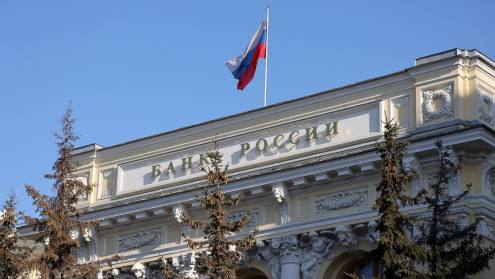Intesa is paying $90m for its stake, valuing the whole bank at $120m or 3.7 times book value.
Intesa, which is the only Italian bank with an operating licence in Russia, intends to strengthen KMB’s business in SMEs while developing individual segment relationships. KMB, which falls just outside The Banker’s Top 100 Russian banks (based on 2003 results), had assets of Rbs9.3bn ($334m) at the end of 2004 along with a network of 50 branches and sub-branches and more than 35,000 clients across Russia’s key cities.
Banca Intesa has also signed a shareholder agreement with the European Bank for Reconstruction and Development (EBRD), which is one of the founding shareholders of KMB and will keep a 25% stake plus one share in the bank. The above agreement includes a put-call option exercisable from 2010.
The remaining shareholders, Soros Development Fund, Dutch foundation Triodos Doen and German development bank DEG, are selling their stakes, as they consider their function in establishing the bank to support entrepreneurship in Russia has been satisfactorily performed and the bank’s business is solidly supported, with KMB becoming part of an international group.
The transaction is expected to be finalised this summer, following regulatory approval, and will be renamed Intesa KMB. Intesa, like its key Italian rival, Unicredit, has focused in recent years on expanding in central and eastern Europe; it now has the second largest banks in Croatia, Slovakia and Serbia, and Hungary’s fourth largest. The Russian acquisition, while small, represents a significant buy for the Italian bank and an important move for foreign banks into the Russian commercial banking sector.











